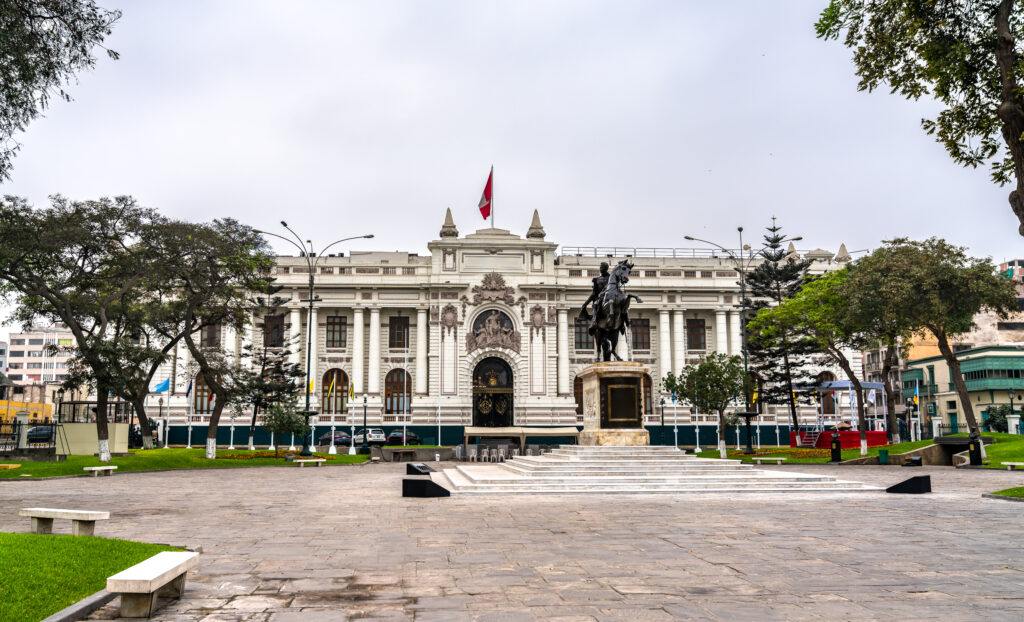The young and courageous Peruvian Congresswoman Rosangella Barbarán is under a furious attack mounted by pro-abortion organizations and activists in the media and on social networks.
The reason is simple: Barbarán has presented legislation requiring the State to guarantee and provide constitutional protection for the safety of pregnant mothers and their unborn children.
The violence of the transnational abortion industry is grounded in the fact that its business is to murder an innocent child. Its tactics often take advantage of the vulnerability of a woman distressed by an unexpected pregnancy, especially when she has been abandoned by the child’s father.
But the violence does not end there. It is also directed at anyone who seeks to protect abortion victims.
The abortion industry needs its victims — pregnant women and unborn children — to be made invisible and deprived of any legal defense. To achieve this goal, they will not hesitate to eliminate anyone who stands in their way.
Barbarán, Peru’s youngest congresswoman, is the target of the same violence we see today in the United States: illegal demonstrations in front of the homes of Members of the Supreme Court, firebombing of pregnancy centers, and desecration of houses of worship.
Like the opinion drafted by U.S. Supreme Court Justice Samuel Alito in the landmark Dobbs v. Jackson Women’s Health Organization, Barbarán’s legislative proposal poses a serious threat to the abortion industry.
Barbarán’s bill requires that the Peruvian State promote the protection of the pregnancy of the pregnant mother, the unborn child and its family environment. It defines these duties as fundamental to the guarantee of the right to life and the well-being of the human person.
Her legislation states that it is the duty of the State and society to protect women and children before, during and after pregnancy and childbirth, and defines this protection as a fundamental right guaranteed by Peruvian law.
The protection that Article 2 of the Peruvian Constitution guarantees to the unborn from the moment of conception is clear. It recognizes the right to life from the very moment of conception. The promoters of abortion, on the other hand, want abortion be legal until later in the pregnancy or even until birth.
However, until Barbarán’s proposal, this Constitutional right has not been implemented in legislation.
For decades the operational arms of the abortion industry, in Peru and around the world, have tried first to undermine this constitutional protection of the unborn child, and then to eliminate it. On five continents, they have pursued the same agenda through endorsing the same exception: cases presenting risk to the life or health of the mother, rape, or congenital malformations.
And in those countries where they have succeeded, they then dedicate themselves to promoting their true political and economic objective: abortion on demand and the declaration of abortion as a human right.
The objective observer should not find it difficult to perceive this.
The abortion movement is an industry, not a charity. It seeks to have its product legally consumed as a good thing, as well as paid for, either by the customer or by the State.
The movement will not be satisfied with abortion merely being acknowledged as a tolerated evil for a few exceptional cases. They want it “legal, accessible and free.” This slogan is a lie, of course: if it is paid for by the state, it will be paid for out of taxes.
Since the last century, pro-life organizations have focused on stopping the evil of abortion. In Latin America, the abortion industry has been trying to legalize abortion for five decades. For all of its billions of dollars invested in the effort, the industry has not succeeded in getting the population to consider abortion as a good.
Rather, it has provoked massive demonstrations of rejection in “Marches for Life” or similar events. Yes, here and there the abortionists have won some legal and political battles, but even with all the economic and political power in their favor, they are far from winning the cultural war.
With her proposed legislation, Barbaran does not seek merely to stop evil; she also focuses on promoting life in a positive way:
– Her legislation seeks to highlight the conceived child and the importance of its protection together with that of the mother during the gestation stage.
– Her legislation aims to ensure that future Peruvians are born properly nourished and monitored, despite the difficult health conditions that exist in Peru, mainly in the highlands and the jungle.
– Her legislation provides pregnant mothers with all necessities required to carry their pregnancies to term — the highest priority for every woman expecting a baby. Contrary to what abortionists say, most women want to be mothers and yet, for various reasons, many lose their babies during the first months of pregnancy.
– Her legislation proposes a preventive approach to avoid maternal deaths and the deaths of newborns which occur either because they were not born in adequate conditions, because they had low birth weight, or because their mothers did not know about the care they should have.
– Her legislation has a comprehensive approach encouraging the father to actively participate in the protection of the pregnancy.
The potential impact of Barbarán’s proposed legislation is extensive indeed, and the promoters of abortion have been better at recognizing that impact than pro-lifers have.
Here the colloquial saying comes into play: “there is no better theology than that of the atheist.”
Susana Chavez, director of the NGO PROMSEX, that receives thousands of dollars every year from the Planned Parenthood Federation of America, recently spelled it out in an interview on a local radio station: “this bill emphasizes declaring the fetus, the product of conception, the embryo, from the moment of conception, a person. It is a fundamental and central change,” she said.
“Right now,” Chavez continued,” women’s rights win (over those of the unborn) by virtue of the fact of having been born. By eliminating this element, they are making those rights (of women already born) equivalent to those of the embryo from the day the egg and sperm join.”
Moreover, she said, “(if Barbarán’s proposal were to become law), it would force women to continue their pregnancy to term because the fetus is declared a person, even in extreme situations.”
Current law “never says that (the fetus) has equal rights with women,” Chavez observed. “This allows us a legal framework. With this type of project (i.e., Barbarán’s legislation), all possibility (of abortion) is closed. (Doctors) could say ‘now we are not obliged (to perform abortions) because there is a law that protects the life of the conceived.'”
It is clear that for abortionists the horror of the approval of Barbarán’s legislation would mean that the unborn child has the right to life, that a woman cannot abort it by her own choice, and that doctors can refuse to take part in this crime.
Since introducing the legislation, Congresswoman Rosangella has been the target of a media campaign in Peru led by PROMSEX and seconded by Catholics for the Right to Decide, feminist NGO’s, and both national and international news agencies. It has also been adopted by the Ministry of Women and Vulnerable Populations led by a pro-abortion NGO activist minister and the official Ombudsman’s Office of the Government of Peru.
The orchestration of this common message is no accident: they all defend the international abortion industry.
The attacks have been escalating in tone, and, in recent days, Congresswoman Barbarán posted on her Twitter account a violent threat she had just received.
In the message, the anonymous sender, apparently an abortion activist who claims to have compassion for animals abandoned in the street but none for unborn children, threatens to abuse, beat and rape Rosangella’s son.
The Population Research Institute’s Latin American office has offered technical assistance to Congresswoman Barbarán in the drafting of her legislation. Our office is also accompanying her in these difficult times, as are millions of Peruvians who have not been poisoned by the hatred and violence that the abortion industry incites.











